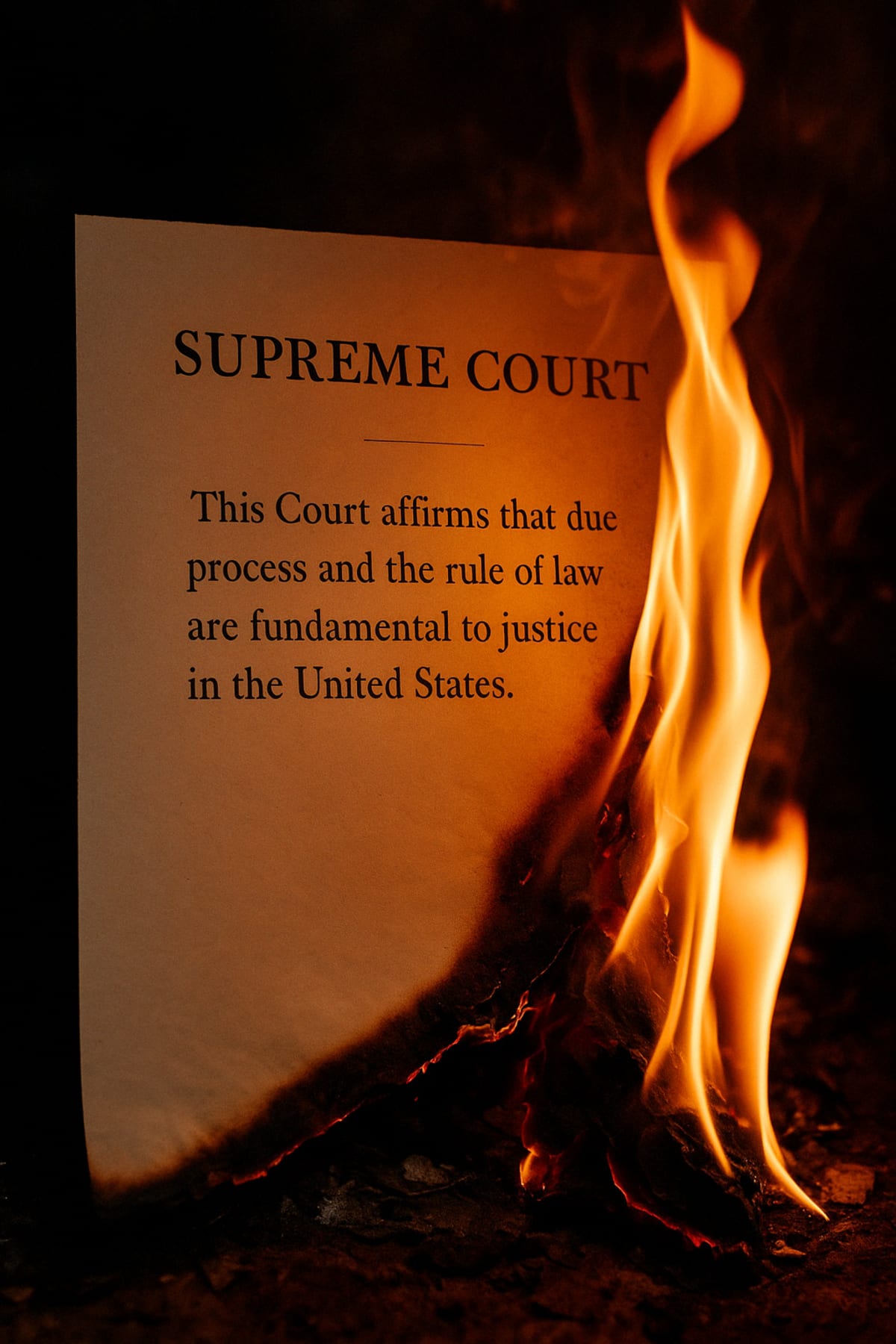In 1776, a group of ragtag colonies—poorly armed, geographically scattered, and politically divided—declared war on the most powerful empire the world had ever seen.
Not over taxes.
Not over tea.
But because a long list of offenses finally tipped the scale from patience to rebellion.
Today, we find ourselves staring at a political landscape that feels all too familiar. With the Trump administration barreling through its second term, the echoes of King George’s abuses aren’t just academic. They’re policy. They’re practice. They’re happening in real time.
Let’s break it down.
📜 Then: The Grievances That Sparked Revolution
The Declaration of Independence contains 27 grievances. Here are a few that should sound eerily familiar:
- Refused to pass laws for the public good
- Obstructed justice and controlled the judiciary
- Deprived the people of trial by jury
- Transported people across seas for fake crimes
- Kept standing armies among civilians in peacetime
- Created swarms of officers to harass the population
Now let’s take a closer look at what’s been happening in 2025.
🔥 One by One, the Offenses Stack Up
1. Deporting Citizens and Residents Without Trial
“For depriving us in many cases, of the benefits of trial by jury.”
In March, Kilmar Abrego García—a Maryland resident with legal protection—was deported to El Salvador's CECOT prison, a brutal mega-facility infamous for torture and indefinite detention. No trial. No hearing. No warning.
And that wasn’t a fluke. Hundreds more have followed, many never seeing a courtroom. The administration is using the Alien Enemies Act, written in 1798, to bypass due process entirely. Sound familiar?
When the Founders revolted, one of their core demands was the right to a fair trial. We’re watching that right dissolve.
2. Outsourcing Justice Abroad
“For transporting us beyond Seas to be tried for pretended offences.”
This one isn’t metaphor. It’s literal. Citizens and residents are being shipped to foreign prisons under secretive bilateral agreements. El Salvador’s President Bukele has agreed to detain U.S. deportees—some of whom are American citizens—with no legal process to bring them back.
Trump has already floated expanding this policy to include citizens, and Bukele has said publicly that he won’t “smuggle a terrorist back.”
No trial. No appeal. Just gone.
3. Unilateral Rule Through Executive Orders
“He has refused his Assent to Laws, the most wholesome and necessary for the public good.”
In his second term, Trump has signed dozens of executive orders targeting immigration, federal oversight, and surveillance. Rather than working with Congress, he’s ruling by decree—just as the colonists accused King George of doing.
These aren’t narrow policy decisions. They’re sweeping structural changes done without consent of the governed. And they’re stacking up fast.
4. Federal Force and Harassment of States
“He has erected a multitude of New Offices, and sent hither swarms of Officers to harass our people.”
“He has kept among us, in times of peace, Standing Armies without the Consent of our legislatures.”
ICE and federal agents have increased their presence in cities labeled “sanctuary jurisdictions,” with raids, surveillance, and threats of federal funding cuts. Entire state governments have been threatened with lawsuits for resisting immigration enforcement policies they consider unconstitutional.
Federal law enforcement is now being used not just to enforce law, but to punish political disagreement.
The Founders recognized this as a classic abuse of power: when the government’s force is no longer neutral, but selectively wielded to suppress.
5. Ignoring Judicial Oversight
“He has made Judges dependent on his Will alone, for the tenure of their offices.”
Even when courts rule against the administration, there’s a pattern of ignoring or reinterpreting the decisions. The Supreme Court ruled that the U.S. must “facilitate” Kilmar Abrego García’s return—but the administration refused to do so, arguing that El Salvador must handle it.
The letter of the ruling was honored. The spirit? Shredded.
A legal system that doesn’t constrain power isn’t a system—it’s theater.
🧨 The Founders Had Enough. What About Us?
These were the kinds of offenses that led thirteen scattered colonies—divided by language, geography, and religion—to come together and say: “No more.”
They rebelled against a king who kept power centralized, denied justice, and punished dissent. They built a new system—flawed, yes, but rooted in the belief that power comes from the people, and that unchecked authority must be resisted.
We’re standing at that kind of moment again.
If deporting citizens without trial isn’t enough to make you speak up, what will be?
If using foreign prisons to silence critics doesn’t chill you, what would?
If rule-by-decree and legal gymnastics don’t raise alarms, what would it take?
This isn’t about party lines. It’s about principles that predate parties entirely.
✊ So What Do We Do Now?
- We speak. Loudly. Relentlessly. Creatively.
- We organize—locally, digitally, nationally.
- We vote. We march. We litigate. We resist.
- We remember that the Revolution didn’t start with muskets. It started with truth. With paper. With ink.
If a baker’s dozen colonies could stand up to a global empire for these offenses, then what excuse do we have for staying silent?
History isn’t asking us to be heroes. It’s asking us to be awake.
Are we?
